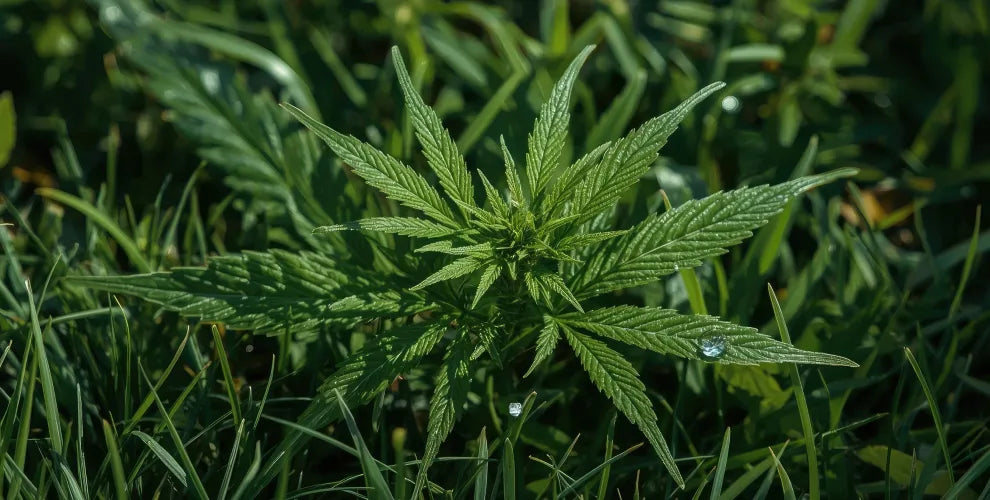THC to CBN: The Chemical Process and Effects
Learn about the basics of converting THC to CBN, including how each cannabinoid works and their benefits, with this guide from Sunmed.

Key Takeaways:
- THC (tetrahydrocannabinol) naturally changes into CBN (cannabinol) over time through exposure to heat, air, and light.
- CBN is considered mildly psychoactive, but its potential effects are more closely associated with calm, rest, and overall balance.
- Understanding this transformation helps consumers make informed choices about hemp-derived wellness supplements.
The cannabis plant contains over a hundred cannabinoids, each with unique properties that can influence the body and mind. Among the best-known is THC, a compound that plays a central role in cannabis’ effects.
Over time, THC undergoes a natural chemical change that results in the creation of CBN, a cannabinoid gaining more attention for its potential benefits.*
What is THC?
THC, short for tetrahydrocannabinol, is one of the most widely studied cannabinoids found in the cannabis and hemp plant. It’s more abundant within the plant than most other cannabinoids, and can interact with the body’s endocannabinoid system (ECS), which plays a role in mood, appetite, sleep, and other processes.
Unlike CBD, THC binds directly with cannabinoid receptors in the brain, creating psychoactive effects.*
What is CBN?
CBN, or cannabinol, develops when THC is exposed to oxygen and light. This natural process occurs as the plant ages, making CBN one of the first identified cannabinoids in early cannabis research.
Unlike THC, CBN is only mildly psychoactive, if at all, and is being studied for its more subtle effects on relaxation and sleep quality.*
How does THC convert into CBN?
The shift from THC to CBN is driven by oxidation. When THC molecules are exposed to air, their chemical bonds break down, forming CBN. Light and heat speed up this process, which is why hemp stored improperly can see higher CBN levels over time.
This transformation is measurable and has been confirmed through modern testing, allowing researchers to study how THC slowly loses potency while producing CBN in its place.
The bottom line
THC and CBN share a direct connection, with one gradually transforming into the other through natural processes.
While THC is known for its psychoactive impact, CBN has a reputation for gentler, more relaxing qualities.* As cannabis research expands, CBN’s place in wellness continues to grow, giving users another way to explore the potential of this versatile plant.
*This statement has not been evaluated by the Food & Drug Administration. This product is not intended to diagnose, treat, cure, or prevent any disease.
FAQs
Does CBN come directly from the hemp plant?
CBN is not produced in large amounts by the plant itself. Instead, it forms naturally when THC is exposed to oxygen and heat over time.
Is CBN stronger than THC?
No, CBN is not stronger than THC. THC is the compound most associated with psychoactive effects, while CBN is generally considered much milder. Many people describe CBN as more calming than stimulating.*
Can CBN help with sleep?
Research suggests that CBN may play a role in supporting restful sleep and reducing disturbances, but more studies are needed to fully understand its effects.*
Sources:
Cannabinoid Receptor 1 Gene by Cannabis Use Interaction on CB1 Receptor Density | PMC












